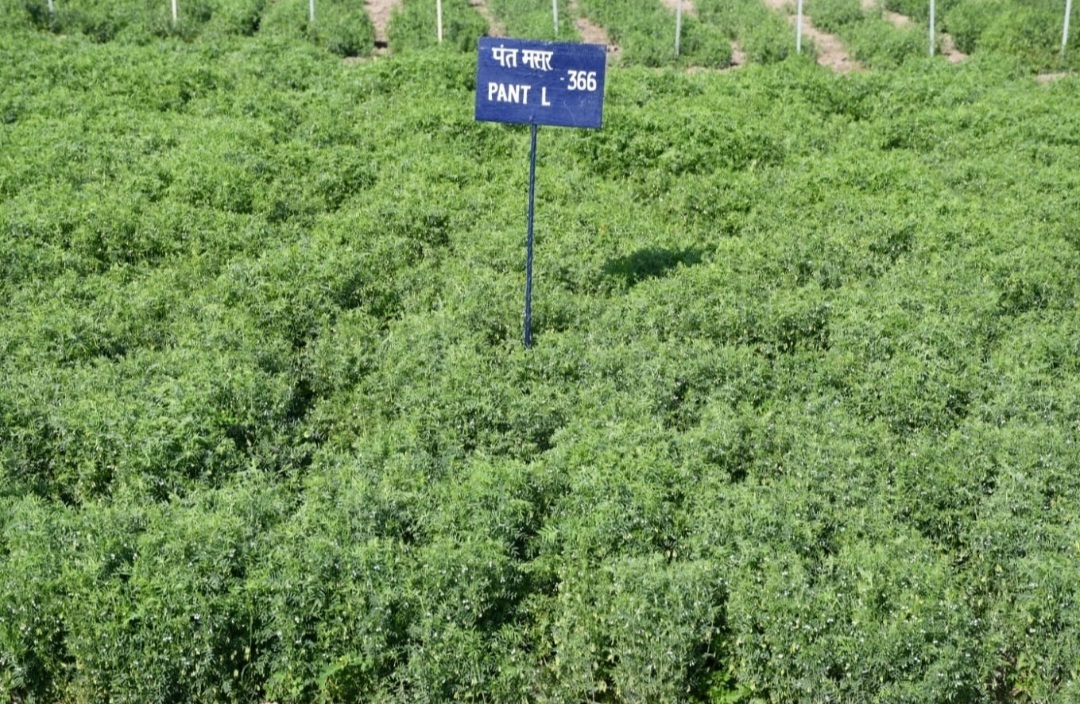Himalaya Harbinger, Rudrapur Bureau.
In a significant development for Indian farmers, the scientists at GB Pant Agricultural University have introduced a new lentil variety, ‘Pant Masoor-16,’ that is expected to revolutionize pulse cultivation. The variety, resistant to major diseases like powdery mildew, Ascochyta blight, and pest attacks from pod borers, delivers a 28% higher yield compared to existing varieties.
“Pant Masoor-16 is a game-changer for farmers in the northern hill regions and northeast India, offering disease resistance and higher yield potential,” said Dr. SK Verma, a leading scientist in the research.
India, where pulses are a critical source of protein for the largely vegetarian population, has seen a remarkable rise in pulse production—from 150-160 lakh tons annually in 2014-15 to over 260 lakh tons today. However, the country still imports 25-30 lakh tons annually to meet domestic demand. The government has set a target to achieve self-sufficiency in pulse production by 2027, making it vital to develop high-yielding, pest-resistant varieties like Pant Masoor-16.
“This variety is particularly well-suited for Uttarakhand, Himachal Pradesh, Jammu and Kashmir, Assam, the hilly regions of West Bengal, and other northeastern states,” said Ajit Singh Nain, Director of Research at Pant University.
At the All India Rabi Pulses Project annual meeting, held from September 2-4 in Bhopal, the new variety was officially recommended for cultivation. Dr. TR Sharma, DDG of ICAR, along with other experts, applauded the innovation.
Vice-Chancellor of Pant University, Manmohan Singh Chauhan, expressed pride in the university’s accomplishment, congratulating the scientists behind the breakthrough, including Dr. Verma, Dr. RK Panwar, and Dr. Anju Arora.
Pant Masoor-16 has consistently shown superior performance, yielding 25-28% more than standard varieties such as Shalimar Masoor-2, VL-507, and VL-514 over three years of trials. The variety matures in 140-150 days and produces an average yield of 16-18 quintals per hectare.










